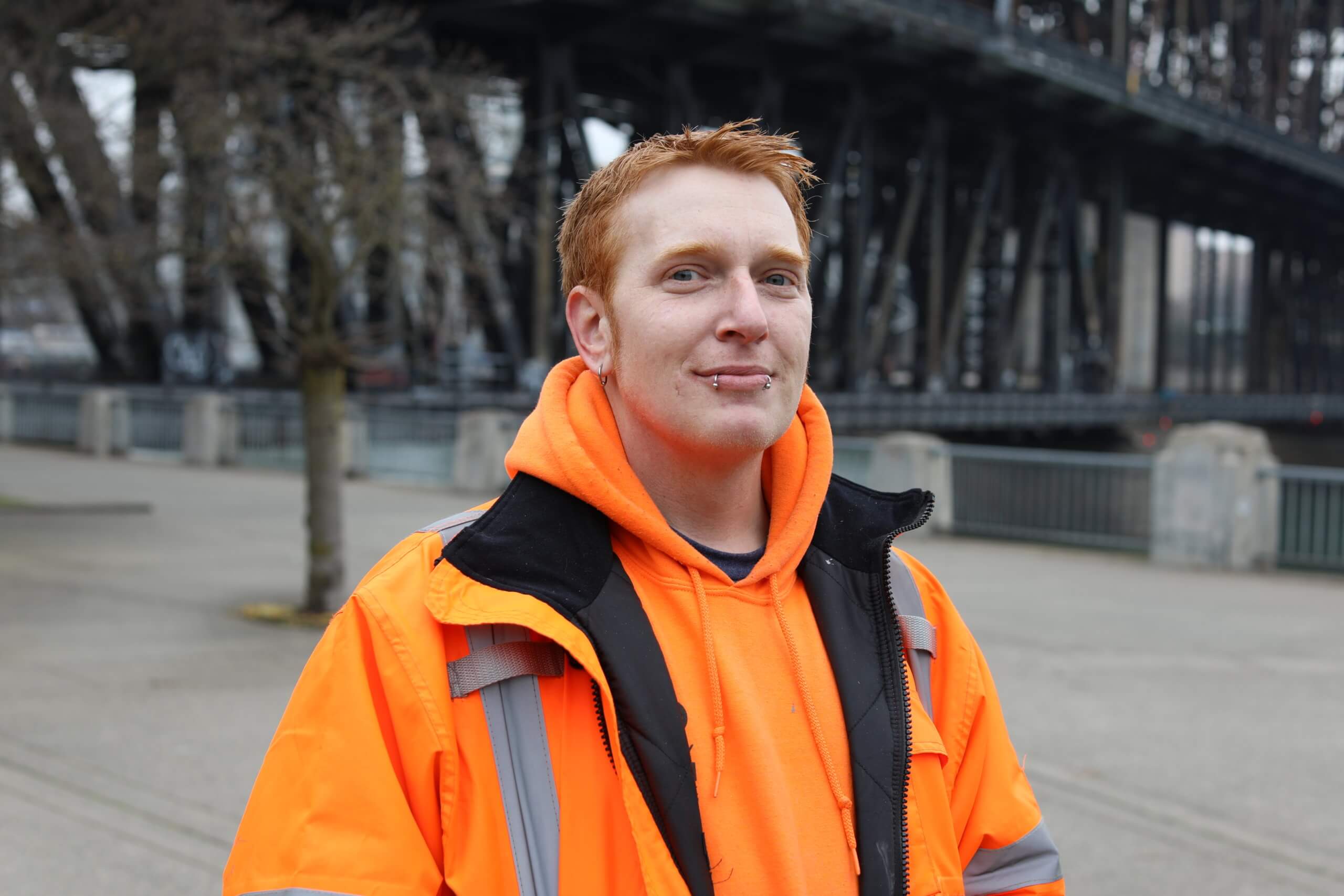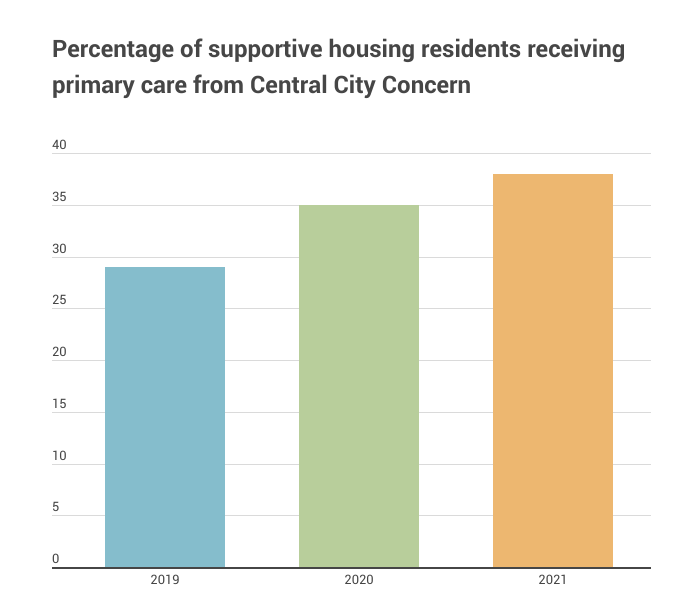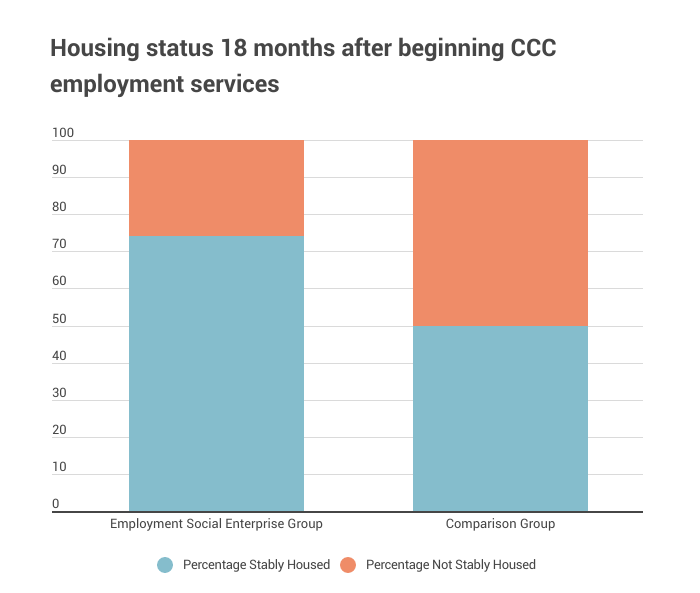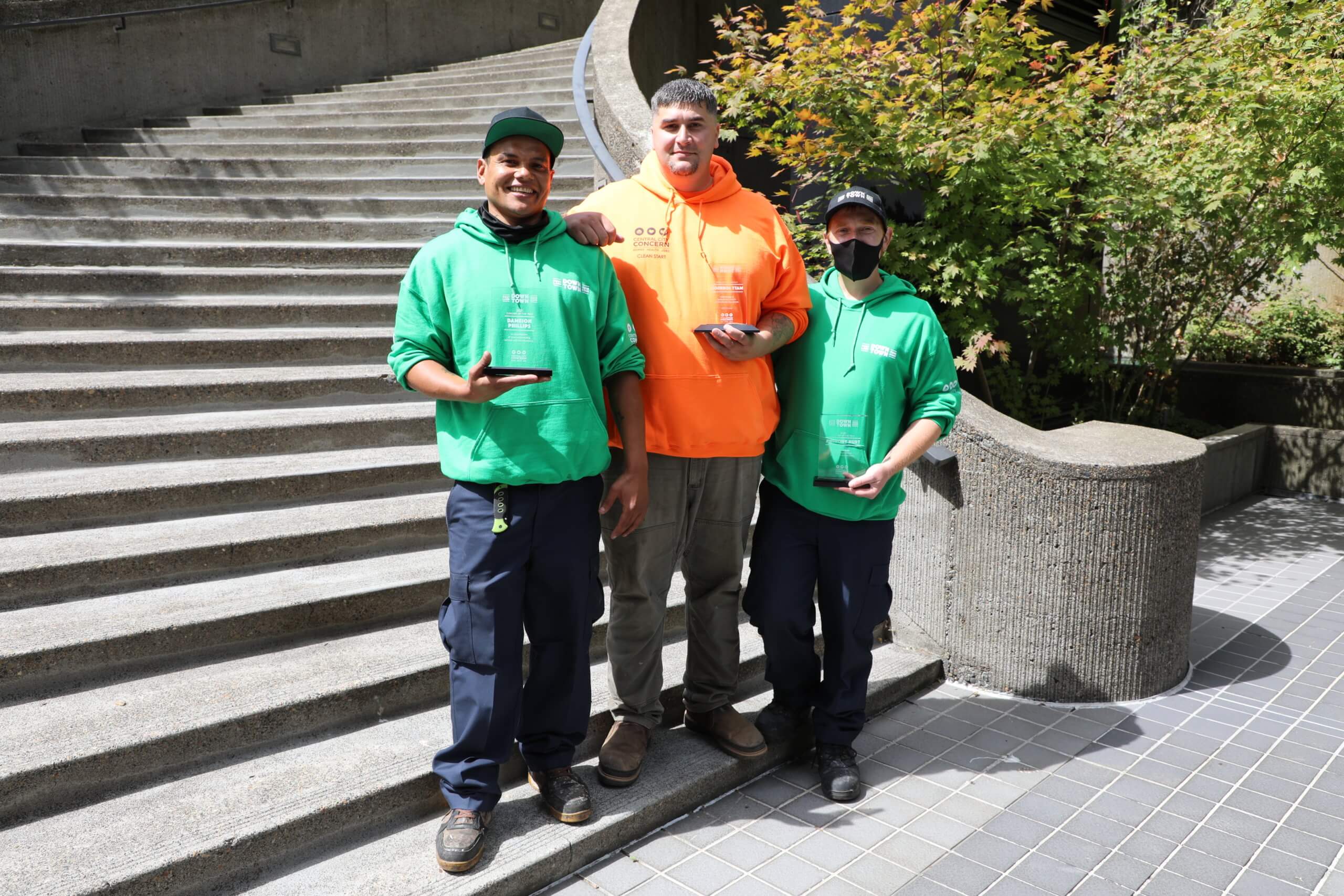Este bloque de contenido no tiene vista previa.

The tragic death of his two-year old daughter in 2010 sent Anthony into a downward spiral. His struggles with painkillers and heroin lead to the loss of his job and his apartment. Soon after, he was living on the street.
On many occasions, he checked himself into Central City Concern’s Centro de estabilización de desintoxicación Hooper. “The great thing about Hooper is that you can just check yourself in – you don’t need to have a court order,” he says.
It’s not uncommon for people to check into Hooper multiple times. CCC’s Operations Director of Withdrawal Management Sarah Spofford said, “Each time they come, a little seed is planted, and then sometimes, it sticks.” She believes that the caring staff make the difference for Hooper patients. “They’re nonjudgmental, they’re passionate and they meet the patient where they’re at, even if they come back 40 times…like, ‘Oh, you’re back. We’re so glad you’re back.’”
After Anthony attempted to take his own life by overdosing in 2019, he again found himself in the care of Hooper. He was then admitted to an outpatient treatment program at CCC’s Centro de Blackburn, where he was also able to live in supportive housing.
"I got really lucky and got into the Blackburn building when it first opened. I was with a fresh group of people in recovery and everybody was excited to be there. I’ve seen a lot of people fall out of recovery, but something was special about this new program. It gave us a sense of hope,” he says.
An advantage of supportive housing is that residents can choose to connect with a variety of CCC services. Blackburn offers health care, recovery services and employment services, all under one roof.
According to Lead Peer Case Manager Lisa Greenfield, “Integration is our secret recipe here, and it works. People really recover here.”
 In 2020, Central City Concern launched an effort to connect supportive housing residents with primary care through CCC's health services, and the percentage of residents receiving primary care has continued to increase.
In 2020, Central City Concern launched an effort to connect supportive housing residents with primary care through CCC's health services, and the percentage of residents receiving primary care has continued to increase.
After six months in the Blackburn treatment program, Anthony secured a job with CCC’s Inicio limpio employment social enterprise program cleaning up downtown Portland. A recent study showed ese participants in CCC’s employment social enterprise programs were more likely to be stably housed than those who engaged with other employment services.
This was true for Anthony-he was able to move into one of Blackburn’s fair-market studio apartments with a kitchen and full-sized bathroom.
Anthony has now been in recovery from using heroin for two years. One piece of advice he gives to others in recovery is to focus on the present.
"There’s nothing I can do about tomorrow and yesterday already happened. So, there’s no point in doing anything else other than thinking about right now. That levels me out more than anything,” he says.
 In 2021, a study showed that participating in these programs made a marked difference in people’s lives after completion. Eighteen months after starting, participants were more likely to be employed and stably housed and less likely to have been arrested than the comparison group, which consisted of people who opted for other employment services from the Employment Access Center.
In 2021, a study showed that participating in these programs made a marked difference in people’s lives after completion. Eighteen months after starting, participants were more likely to be employed and stably housed and less likely to have been arrested than the comparison group, which consisted of people who opted for other employment services from the Employment Access Center.
“It’s neat seeing all of these people who were completely different people when they were on the street…now they got their life together and it’s a complete 180. It really does show you, there’s hope for anybody if they’re willing to take the right steps."
Anthony
 Anthony (right), along with Dameion and Matt, hold their awards for being named the 2020/2021 Cleaners of the Year.
Anthony (right), along with Dameion and Matt, hold their awards for being named the 2020/2021 Cleaners of the Year.
Recovery is possible—we see it every day. Support Central City Concern and give the gift of hope and healing to neighbors in need.